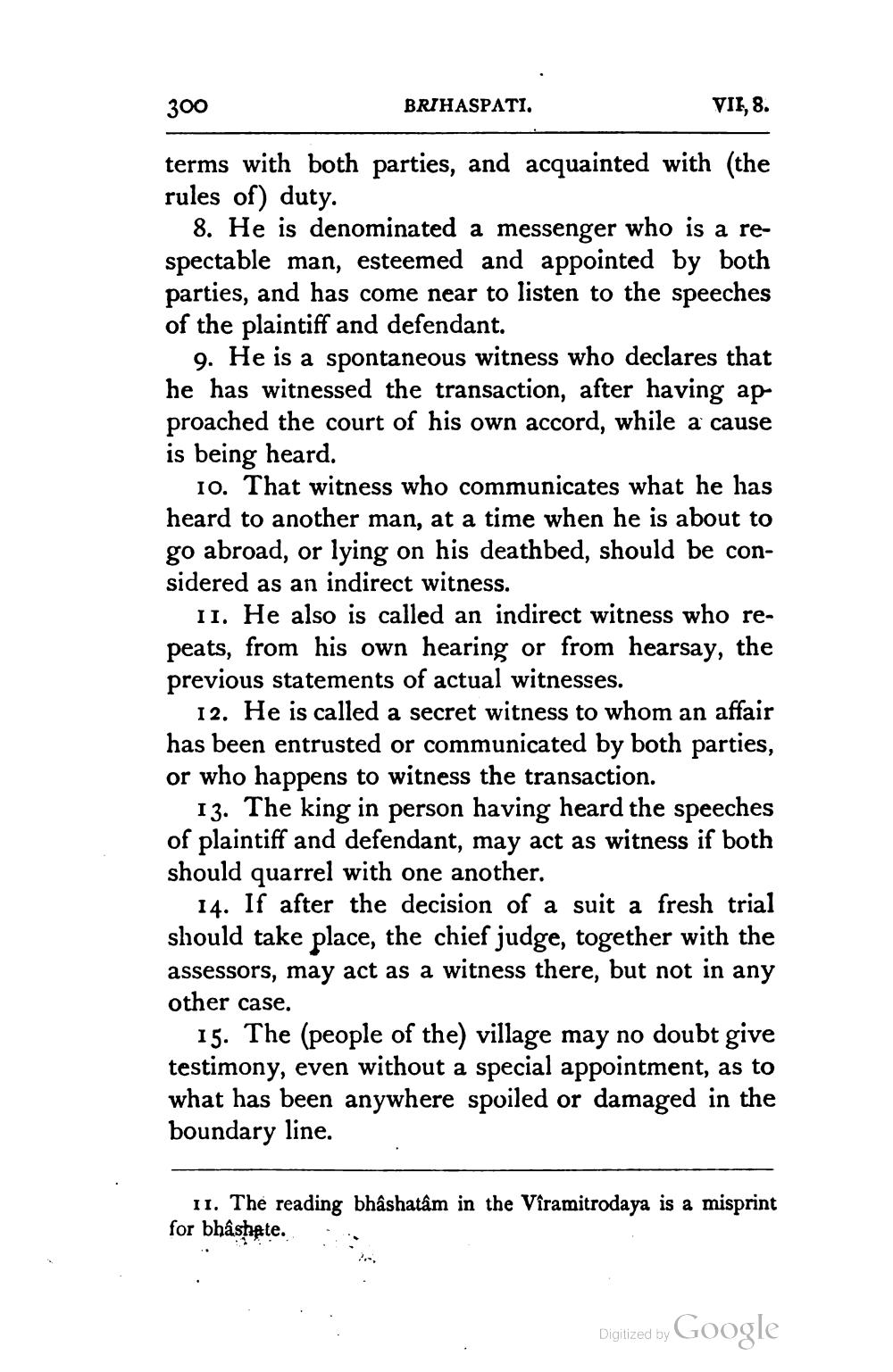________________
300
VII, 8.
terms with both parties, and acquainted with (the rules of) duty.
8. He is denominated a messenger who is a respectable man, esteemed and appointed by both parties, and has come near to listen to the speeches of the plaintiff and defendant.
9. He is a spontaneous witness who declares that he has witnessed the transaction, after having approached the court of his own accord, while a cause is being heard.
10. That witness who communicates what he has heard to another man, at a time when he is about to go abroad, or lying on his deathbed, should be considered as an indirect witness.
BRIHASPATI.
II. He also is called an indirect witness who repeats, from his own hearing or from hearsay, the previous statements of actual witnesses.
12. He is called a secret witness to whom an affair has been entrusted or communicated by both parties, or who happens to witness the transaction.
13. The king in person having heard the speeches of plaintiff and defendant, may act as witness if both should quarrel with one another.
14. If after the decision of a suit a fresh trial should take place, the chief judge, together with the assessors, may act as a witness there, but not in any other case.
15. The (people of the) village may no doubt give testimony, even without a special appointment, as to what has been anywhere spoiled or damaged in the boundary line.
11. The reading bhâshatâm in the Vîramitrodaya is a misprint for bhashate.
Digitized by
Google




